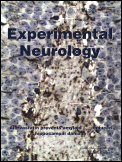Experimental Neurology
Experimental Neurology is a field of neuroscience that focuses on understanding the mechanisms underlying the development, function, and disorders of the nervous system, as well as the testing of new therapeutic strategies. This discipline employs a variety of experimental techniques from molecular biology, electrophysiology, computational neuroscience, and behavioral science to investigate the properties of neurons, glial cells, and neural circuits. The ultimate goal of experimental neurology is to translate basic research findings into new approaches for the diagnosis, treatment, and prevention of neurological disorders.
Overview[edit | edit source]
Experimental neurology encompasses both basic and applied research. Basic research aims to increase our understanding of fundamental neurological processes, while applied research focuses on developing new treatments and interventions for neurological diseases. This field plays a crucial role in the discovery of new therapeutic targets and the development of innovative treatments, such as pharmacological, genetic, and engineering-based interventions.
Research Areas[edit | edit source]
Experimental neurology covers a broad range of research areas, including but not limited to:
- Neurodegeneration: Investigating the causes and mechanisms behind diseases like Alzheimer's disease, Parkinson's disease, and Huntington's disease.
- Neuroinflammation: Exploring the role of the immune system in neurological conditions, including how inflammation affects the brain and nervous system.
- Neural regeneration: Studying the potential for nerve tissue to regenerate after injury or disease, including strategies to promote neurogenesis and repair.
- Neuroplasticity: Understanding how the brain adapts to changes, learning, and injury, which has implications for rehabilitation after brain injuries.
- Cognitive neuroscience: Investigating the neural bases of cognitive functions such as memory, attention, and language, and how these are affected by neurological disorders.
Experimental Techniques[edit | edit source]
A variety of experimental techniques are used in experimental neurology, including:
- Molecular biology techniques: Such as CRISPR/Cas9 for gene editing, and various forms of RNA interference (RNAi) for studying gene function.
- Electrophysiology: Including patch-clamp recordings to study the electrical properties of neurons and their communication through synapses.
- Imaging techniques: Such as MRI (Magnetic Resonance Imaging) and PET (Positron Emission Tomography) for visualizing the structure and function of the brain in vivo.
- Behavioral testing: To assess the effects of interventions on cognition, motor function, and other behaviors in animal models.
Challenges and Future Directions[edit | edit source]
Experimental neurology faces several challenges, including the complexity of the nervous system, the difficulty of translating findings from animal models to humans, and ethical considerations in research. Despite these challenges, advances in technology and methodology continue to drive the field forward. Future directions may include the development of more sophisticated models of neurological diseases, personalized medicine approaches to treatment, and the integration of artificial intelligence and machine learning to analyze complex data.
Navigation: Wellness - Encyclopedia - Health topics - Disease Index - Drugs - World Directory - Gray's Anatomy - Keto diet - Recipes
Search WikiMD
Ad.Tired of being Overweight? Try W8MD's physician weight loss program.
Semaglutide (Ozempic / Wegovy and Tirzepatide (Mounjaro / Zepbound) available.
Advertise on WikiMD
WikiMD is not a substitute for professional medical advice. See full disclaimer.
Credits:Most images are courtesy of Wikimedia commons, and templates Wikipedia, licensed under CC BY SA or similar.Contributors: Prab R. Tumpati, MD

